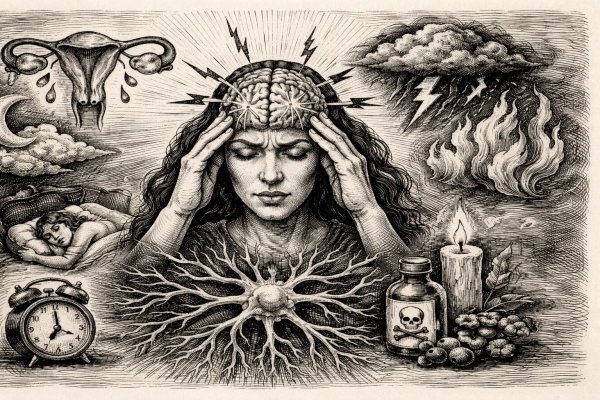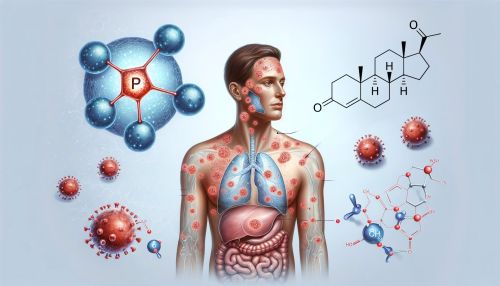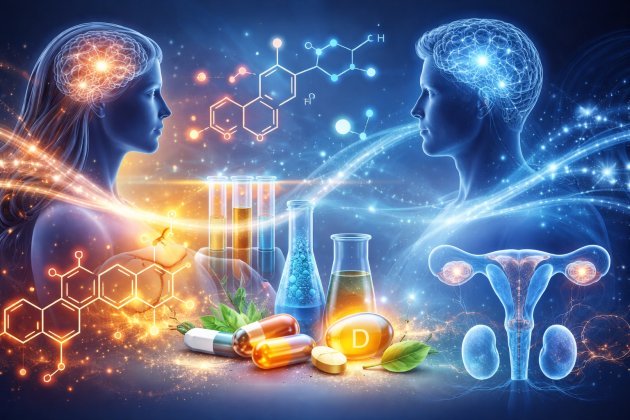Still struggling to find the right dose to stop fluid and weight gain
by Julie
(Oregon, USA)
Hi Wray, I recently started using NatPro after using Emerita for months and I must say that I absolutely LOVE your formulation. I wanted to thank you first and foremost for creating such a wonderful product and I also wanted to thank you for helping guide us through this frustrating hormone maze. I've read through many of these pages and have learned a lot.
I am 42 and have probably been suffering from estrogen dominance since my 20's but didn't realize it until three years ago. I have two children and though both of my pregnancies were "normal", it was during my pregnancies that I developed allergies, thyroid problems, and adrenal problems. I had regular but heavy periods until age 39 when I developed dizziness and fairly extreme edema. My vitamin D was low (19) and my food allergies were off the charts. I changed my diet drastically though I was already eating well and at a healthy weight. Shortly thereafter my periods stopped completely and I gained over 20 lbs of fluid in my legs. I've been working with an amazing naturopath to regulate my thyroid and we hoped that once that happened, it would have regulated my female hormones and my estrogen dominance, too, but no such luck. Now we understand that in my case, estrogen is the root of my problems.
My estrogen level isn't that high (46 last time we checked) but my progesterone is way too low (.5). For months I was using too little progesterone cream (20-40 mg) and gaining fluid like crazy (over 30 lbs) and it wasn't until I went up to 200 mg that I finally got my period again. I'm currently using 240 mg of NatPro per day (120 twice a day) and though I am no longer experiencing allergies, breast tenderness, or hair loss, I'm still gaining. I researched some of the other herbs and supplements I was taking to see if they could be causing the weight gain and learned that both DIM and vitamin D can unfortunately cause estrogenic effects in some people. Weird, I know. I stopped taking 5,000 vitamin D (my level is up to 50 now--still low but for me, pretty good) and my DIM plus and started to lose fluid immediately for the first five days. I kept my progesterone dose the same, too, but as of today, I'm gaining again. So very frustrating.
My questions are these: Can fluid still be caused by too much estrogen when all of my other estrogenic symptoms are gone? Also, how long to do you stay at the dose that finally makes your estrogen symptoms go away? Are you supposed to decrease the dose once you feel stable? How do you know when you are stable and how do you know the difference between estrogen symptoms returning and the need to decrease?
Thank you so very much for your time and patience :)
Julie
Comments for Still struggling to find the right dose to stop fluid and weight gain
|
||
|
||
|
||
|
||
|
||
|
||
|
||
 Migraines aren’t just intense headaches — they’re a systemic neurological crisis that disrupts your senses, drains your energy, and derails your life. What most people don’t realize is that women are…
Migraines aren’t just intense headaches — they’re a systemic neurological crisis that disrupts your senses, drains your energy, and derails your life. What most people don’t realize is that women are… Psoriasis is commonly seen as a skin problem — red, scaly patches that itch and flare without warning — but research shows the real driver may be hormonal imbalance deep inside the body, especially lo…
Psoriasis is commonly seen as a skin problem — red, scaly patches that itch and flare without warning — but research shows the real driver may be hormonal imbalance deep inside the body, especially lo… Low libido—whether described as poor sexual desire, low arousal, or hypoactive sexual desire disorder—is a common and complex issue affecting both men and women, shaped by physical, endocrinologic, ne…
Low libido—whether described as poor sexual desire, low arousal, or hypoactive sexual desire disorder—is a common and complex issue affecting both men and women, shaped by physical, endocrinologic, ne…